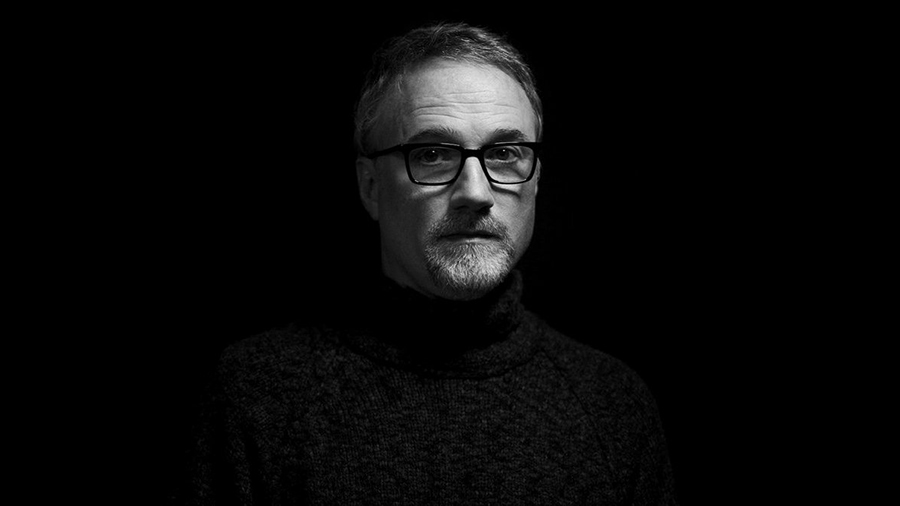Hollywood filmmaker David Fincher turns 60 on August 28, giving us a reason to raise a toast to his aesthetic vision that pushed conventional genres out of their boxes.
Starting out as a member of the visual effects team in Star Wars: Return of the Jedi (1983), Fincher became one of the acclaimed directors of our time who uses stylised visual effects to plumb the depths of the human psyche. Even Fincher’s animation directorial debut, the Bad Travelling episode of the Netflix show Love, Death + Robots (2022), shows a highly stylised blending of 3D modelling of animation with actual performances by actors motion-captured with reference cameras.
Here are six films by David Fincher that show his range and depth as a filmmaker.
Mank (2020)
In 2020, Fincher went black-and-white for the biographical drama Mank, adapted from a screenplay written by his late father Jack Fincher. The film follows the life of US reporter-turned-screenwriter Herman J Mankiewicz in the golden era of Hollywood — the 1930s and ’40s — and shows how he came up with the screenplay for Orson Welles’ 1941 classic Citizen Kane. This heartfelt movie is a testament to the genius of the little-known screenwriter — played by Gary Oldman — who did not get due credit for the classic until the very end. Mank poses a stark contrast to Fincher’s other projects in terms of style, ambience and approach as he replicated the filming techniques of the 1940s through modern tech.
The Girl with the Dragon Tattoo (2011)
In 2011, Fincher collaborated with Oscar-winning screenwriter Steven Zaillian to adapt Swedish writer Stieg Larsson’s novel of the same name. The neo-noir psychological thriller follows a Swedish journalist investigating the possible murder of a girl who disappeared 40 years ago, starring Daniel Craig and Rooney Mara as Michael Blomkvist and Lisbeth Salander. Fincher creates a unique world with his distinct narrative technique and imagery. A master of psychological thrillers, Fincher effortlessly punches in serial killings, Sweden’s sinister wartime history and modern technology to give the grim tale set in the freezing northern Europe environment a serious facelift.
The Social Network (2010)
When someone as iconic as Quentin Tarantino calls a film the most important of the century, it has to be something special. In 2010, David Fincher collaborated with writer Aaron Sorkin to adapt Ben Mezrich’s book, The Accidental Billionaires. The movie chronicles the contentious early years of the social networking site Facebook and the resulting lawsuits against Mark Zuckerberg. The Social Network combines courtroom drama with character study — it traces Facebook founder Zuckerberg’s journey as an 18-year-old sophomore at Harvard University. Fincher uses themes of alienation, ambition, companionship and the expansion of the digital world to create a visual treat with stars like Jesse Eisenberg, Andrew Garfield and Justin Timberlake.
Zodiac (2007)
Fincher’s 2007 film Zodiac traces the manhunt for Zodiac Killer, a serial killer who terrorised the San Francisco Bay Area in the late 1960s and early ’70s. The film is based on the non-fiction books, Zodiac and Zodiac Unmasked, by Robert Graysmith. The movie features Jake Gyllenhaal, Mark Ruffalo and Robert Downey Jr. in the lead. Though Fincher had earlier ventured into serial killer thrillers with Seven (1995), he cemented his status as one of the true masters of the genre with Zodiac. With state-of-the-art technology to transport viewers to the middle of the last century, the movie holds onto the tension throughout and keeps viewers glued to their seats.
The Curious Case Of Benjamin Button (2008)
Romantic films and David Fincher didn’t sit well together. Until The Curious Case Of Benjamin Button happened in 2008. Loosely adapted from a short story by F. Scott Fitzgerald, this movie follows the life of Benjamin Button (played by Brad Pitt), who suffers from a rare ailment that makes him age backwards, and his relationship with the woman he loves, Daisy Fuller (played by Cate Blanchett). The Curious Case Of Benjamin Button is a deep reflection on mortality and the changing nature of human relationships as Daisy grows older over the years and Benjamin gets younger.
Fight Club (1999)
Fincher’s Fight Club forever changed the way of presenting psychological thrillers. Adapted from Chuck Palahniuk’s celebrated novel of the same name, the film follows an unnamed insomniac (Edward Norton) who is miserable with his capitalistic lifestyle and forms an underground fight club with a mysterious soapmaker named Tyler (Brad Pitt). Upon its release, Fight Club became one of the most talked about films of the year and divided viewers over its depiction of the ultra-violent male psyche and mental health. However, Fincher’s masterful direction and visual representation of a troubled mind made the film a cult classic.











